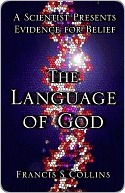More on this book
Community
Kindle Notes & Highlights
it may lead humans to make sacrifices that lead to great personal suffering, injury, or death, without any evidence of benefit. And yet, if we carefully examine that inner voice we sometimes call conscience, the motivation to practice this kind of love exists within all of us, despite our frequent efforts to ignore it.
Doubt is an unavoidable part of belief. In the words of Paul Tillich, “Doubt isn’t the opposite of faith; it is an element of faith.”1
is this, like the Moral Law described in the preceding chapter, an inkling of what lies beyond, a signpost placed deep within the human spirit pointing toward something much grander than ourselves?
“Creatures are not born with desires unless satisfaction for those desires exists. A baby feels hunger: well, there is such a thing as food. A duckling wants to swim: well, there is such a thing as water. Men feel sexual desire: well, there is such a thing as sex. If I find in myself a desire which no experience in this world can satisfy, the most probable explanation is that I was made for another world.”
Could it be that this longing for the sacred, a universal and puzzling aspect of human experience, may not be wish fulfillment but rather a pointer toward something beyond us? Why do we have a “God-shaped vacuum” in our hearts and minds unless it is meant to be filled?


